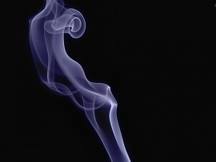Parshat Korach and Teshuva
Moshe Kempinski
The Mishna teaches that a dispute that is for the sake of Heaven, will yield lasting results while one that is not for the sake of Heaven will not yield lasting results (Avot 5:20). The classic example of “heaven-centered disputes”” are the long standing disagreements between Hillel and Shammai. On the other hand the classic example of a “non-heaven focused arguments” is that of Korach and his followers. Though Korach and his followers raised important theological issues with Moshe and Aaron , their purpose was clearly self aggrandizement and not about ultimate truth.
Yet the Torah portion of Korach is not only about discord and rebellion. The portion in fact outlines the guidelines for Teshuva ( repentance) and rebuilding.
As a result of the rebellion we see a quick measure of divine accounting and judgment: “A fire came forth from Hashem and consumed the two hundred and fifty men who had offered up the incense.(Numbers 16:36) . Following this we read the following declaration of G-d
“Hashem spoke to Moshe saying: Say to Elazar the son of Aaron the kohen that he should pick up the censers from the burned area (but throw the fire away), because they have become sanctified,the censers of these who sinned at the cost of their lives, and they shall make them into flattened out plates as an overlay for the altar, for they brought them before Hashem, and have [therefore] become sanctified, and they shall be as a reminder for the children of Israel.”( Numbers 17:1-4)
Why would those brass censers used in the rebellion be used to cover the altar? G-d intended it to be clear that the arrogance displayed by Korach against G-d’s design and His appointed messengers could not be ignored. Yet on the other hand, the passion and the zeal for an act of holiness could not be dismissed.
Every morning and evening a Jewish person recites the Shma prayer ” Hear, O Israel: Hashem our G-d, Hashem is one. And thou shall love Hashem your G-d with all your heart ( bechol Levavcha) , and with all your soul, and with all your might.”( Deuteronomy 6:4-5)
Our sages ask why the word “Levavcha” (with all your heart ) is written with two letters BET .Should it not have said “Belibcha” with one BET? The Sifri explains that this was to teach us that one is to serve G-d, with “both” of our hearts—the yetzer tov( the inclination for good ) and the yetzer harah ( the inclination for the opposite). We need to turn our tendency for arrogance towards Divine purpose.
Passion and zeal become unworthy when it is directed just towards the ego . On the other hand “” lack of passion is not the solution. So Moshe elevated the censers representing zeal and pointed them towards the right direction. Teshuva is not about denying one’s passion and zeal it is about directing it heavenward
Yet Repentance cannot be linked to separation and hatred. True Teshuva and turning for G-d cannot come with rancor and divisiveness That was missed by some of the people of Israel who became enthralled by the passion of the followers of Korach .As a result they complained to Moshe;
“The following day, the entire congregation of Israel complained against Moshe and Aaron saying, “You have killed the people of Hashem.”(ibid 17:6)
It is then that we read about the Ketoret.
When a plague breaks out in the midst of the complaints of the children of Israel, “Moshe said to Aaron, “Take the censer and put fire from the altar top into it. Then take it quickly to the congregation and atone for them, for wrath has gone forth from Hashem, and the plague has begun.” ( Numbers 17:11)
What is the secret of the Holy Incense ( the Ketoret) ?The unique character of the incense reflects the message of harmony and inter-connectivity. The Hebrew word for incense, ketoret, is related to meaning of binding or tying. The incense unites together the core essence of all forces — life, matter, and spirit — according to the powerful recipe that G-d prescribed.
The eleven ingredients of the ketoret brought together many fragrances, included galbanum (chelbenah), which, despite its unpleasant odor was a critical ingredient. All sweet savors and smells in this world are born out of the power of life and renewal while all pungent and putrid smells always come from the power of death and decay . Yet the galbanum was included.
Ten is a powerful number in Jewish symbolism. It is the number of the quorum that is needed to come together in prayer and bring G-d within the gathering. Man obviously can pray as a solitary individual, yet the power of the quorum of ten, like the Hebrew letter yud,(the letter representing 10) denotes an inherent higher level of in-dwelling Presence.
Yet the ketoret is made up of eleven and not ten ingredients. The Baal Hatanya explains that, to increase the level of Divine participation beyond the level of ten, we must include the eleventh constituent—even if he is not a regular member of your spiritual circle, even if he is represented by the foul smelling galbanum.
Teshuva cannot only be fueled by passion and zeal. It must be intrinsically connected with inclusion. Teshuva cannot be accessed unless the individual connects him or themselves to the “greater whole” of the community
It is clear that this lesson was internalized by Aviasaf and Elkanah , the descendants of Korach. These “sons of Korach” wrote with such passion the words “As a deer cries longingly for rivulets of water, so does my soul cry longingly to You, O G-d.My soul thirsts for G-d, for the living G-d; when will I come and appear before G-d?(Psalm 42;2-3)”.
These same sons of Korach also understood then the power of inclusion of the people and nations of the earth; “For the conductor, by the sons of Korah, a song. Hear this, all you peoples; hearken, all You inhabitants of the earth. Both the sons of “adam,”( the simple) and the sons of “ish,”(the elite) together rich and poor.(psalm 49:1-3).
The ingredients of a true turning towards G-d ,therefore ,are the passion and zeal directed to the Heavens combined with the heart of inclusion of all the people.

